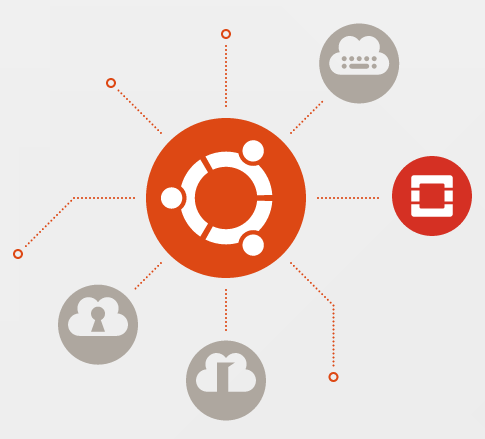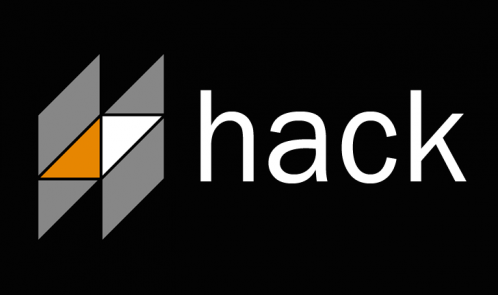The last month or two have been chock full of small news and releases not warranting a full story in their own right but still interesting, I’ve decided to make a small compilation and direct your attention to the interesting developments around us. Just because we don’t cover something immediately, doesn’t mean we don’t notice or care :)
Ubuntu 14.04. LTS

Not so much PHP related, but still fairly important for our channel and future development purposes, the release of Ubuntu Server 14.04 LTS kind of flew by most people. This release will be supported by Canonical until 2019, which is a big deal as we can now all switch to this newest version as soon as it’s vetted by hardcore users. Stay tuned for upcoming Vagrant boxes predefined for 14.04. soon – we’ll be custom building and publishing some soon.
You can download the server version here and there’s a default Vagrant box available here.
GAE 1.9.1 – 1.9.3

Google App Engine has reached minor version 1.9.3., adding some more features and upgrades since the last time we talked about it:
- bug fixes regarding Zend Framework, null characters in URLFetch, failed file uploads to Cloud Storage, long POST data, unlimited upload sizes and the
fnmatch()function - ability to embed images in emails via the Content-Id header was added
- the zip module is included by default now
The SDK has been updated and you can take it for a spin immediately. To see how you can do that, check out my previous article on GAE.
Hack

HHVM reached version 3 (finally, a sane versioning scheme – a rarity in the PHP world) and publicly introduced Hack, the “PHP as it should be” we’ve talked about before.
Their website features a wide variety of examples, good docs, and an interactive tutorial you can use to get familiar with it. It’s not that different from PHP, so it’ll be an easy entry for most PHP devs. HHVM has also achieved full compatibility with 23 popular libraries/frameworks.
Phalcon 2 beta 1

Phalcon 2 has reached beta 1. You can now use Zephir and Phalcon 2 to create production apps, but there’s still some documentation and APIs missing – a more in depth article on this topic is coming soon. Feel free to read their release post in the meanwhile.
Impresspages

A not-so-well-known but incredibly robust CMS called ImpressPages has reached the milestone version of 4.0. We’ll be putting up some guides and reviews of this CMS soon, so stay tuned!
OroCRM

OroCRM, a heavy duty rich CRM application for which some guides are coming soon has been made publicly available and downloadable via GitHub. It’s fully open source, aiming to both make CRM more approachable and to grab some market share from the current champions like SugarCRM.
ZF2CA certification

Zend, the PHP company, has announced the immediate availability of Zend Framework 2 Certified Architect certification. It was developed by an expert advisory board led by Matthew Weier O’Phinney, ZF’s Project Lead and a rather competent team. Reservations for taking the exams are coming soon.
Hop on over to their training website to get your skills honed in time for the exam.
PhpStorm 8 approaching

The latest EAP version of PhpStorm supports PSR-0 and PSR-4 namespace roots, making your development process ever smoother and more automatic. Read more about the changes in the release notes or just try the EAP version out.
WordPress 3.9

As usual, the latest WordPress update features some mostly cosmetic improvements, but improvements nonetheless. At this point, I’m personally very interested in what version 4.0 will bring us. Perhaps 21st century code like OOP, package management and taking full advantage of PHP5.5? What would you like to see happen?
Zend Framework 3 Progress
Zend Framework 3 isn’t fully on its (public) way yet, but it’s being developed step by step. One such indicator are the ZF3 tagged issues on GitHub which indicate a refactoring of a wide range of components, but one that particularly pleases me is ZF finally getting rid of yet another anti-pattern they introduced – the ServiceLocator which rendered all parts so dependent on a single component which in turn had other dependencies, you could no longer use a part of ZF without pulling in most of the rest. To follow the progress, just keep tracking the ZF3 tagged issues.
Composer Package Marketplace
As mentioned in our latest newsletter, Packages.io is a soon-to-be-live marketplace for Composer packages. It’s unknown whether the packages will be closed or open source and how they’ll be protected from piracy, plagiarism and bad coding habits, but it’s an interesting notion. While commercializing something that was originally envisioned as open source would be deemed villainous and greedy by some, I believe we all have the right to sell anything we want to anyone we want. There is, however, the concern of quality – how can we trust the reviewers, how can we trust packages we ourselves don’t have input on? Are we staring down the barrel of another WP-plugin/theme marketplace, filled to the brim with awful, irreparable code, or does this have proper potential? We’ll know more in a couple days. For now, all we know is that Cartalyst seems to be behind the site.
PHPUnit drops PEAR support
PHPUnit, the essential testing library for PHP, has decided to drop support for installation via PEAR. In a move that pleases many, surprises some, and disappoints none, Sebastian Bergmann, the author of the library, gives us his thoughts on the choice he made.
PEAR has failed as a package manager, but due to lack of competition we failed to see better until the advent of Composer. It’s up to us to change the public perception, abandon what doesn’t work, and slowly, package by package, move to a higher quality system of PHP code distribution.
Conclusion
The list is far from exhaustive, and features only news that you probably missed due to lack of exposure but might be curious about anyway. Did we miss any crucial ones? Let us know in the comments below, and we’ll update the article!
Bruno is a blockchain developer and technical educator at the Web3 Foundation, the foundation that's building the next generation of the free people's internet. He runs two newsletters you should subscribe to if you're interested in Web3.0: Dot Leap covers ecosystem and tech development of Web3, and NFT Review covers the evolution of the non-fungible token (digital collectibles) ecosystem inside this emerging new web. His current passion project is RMRK.app, the most advanced NFT system in the world, which allows NFTs to own other NFTs, NFTs to react to emotion, NFTs to be governed democratically, and NFTs to be multiple things at once.
